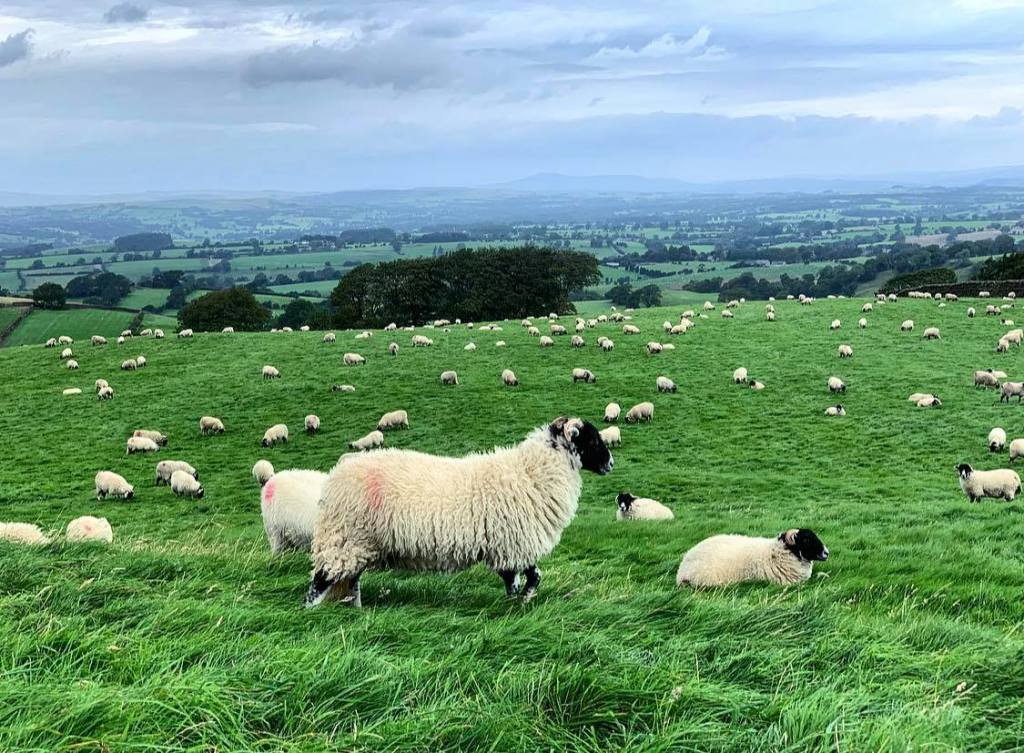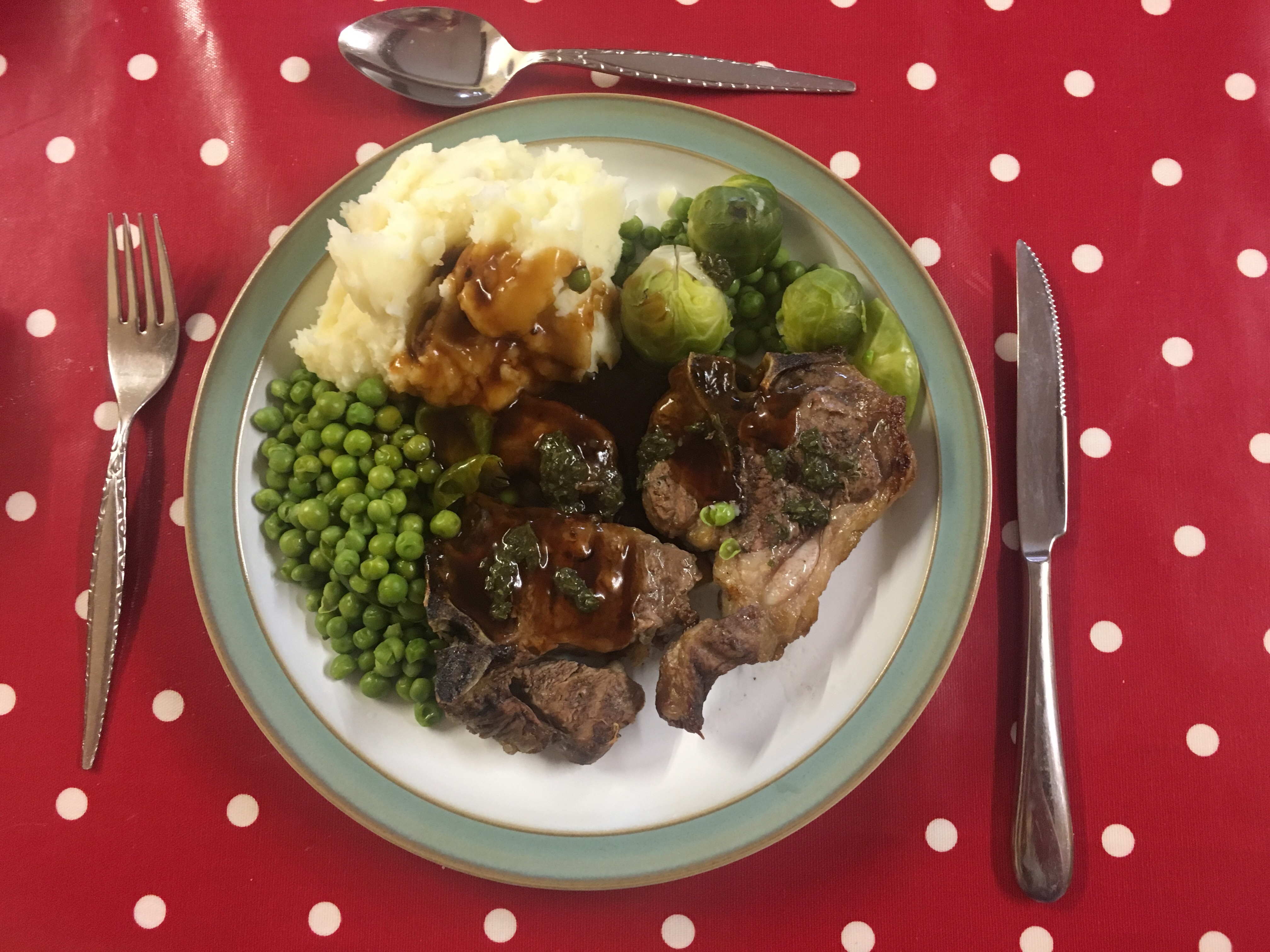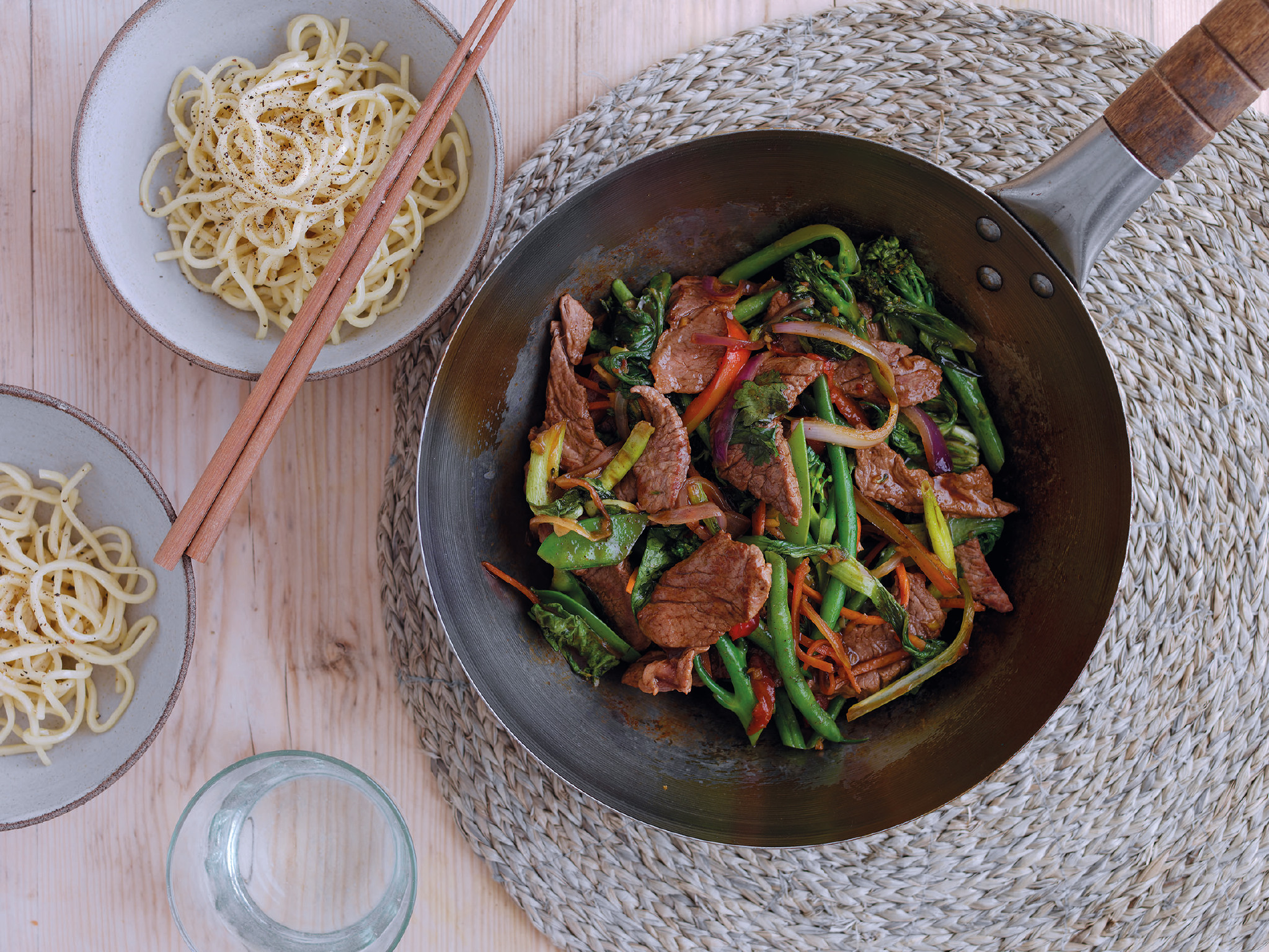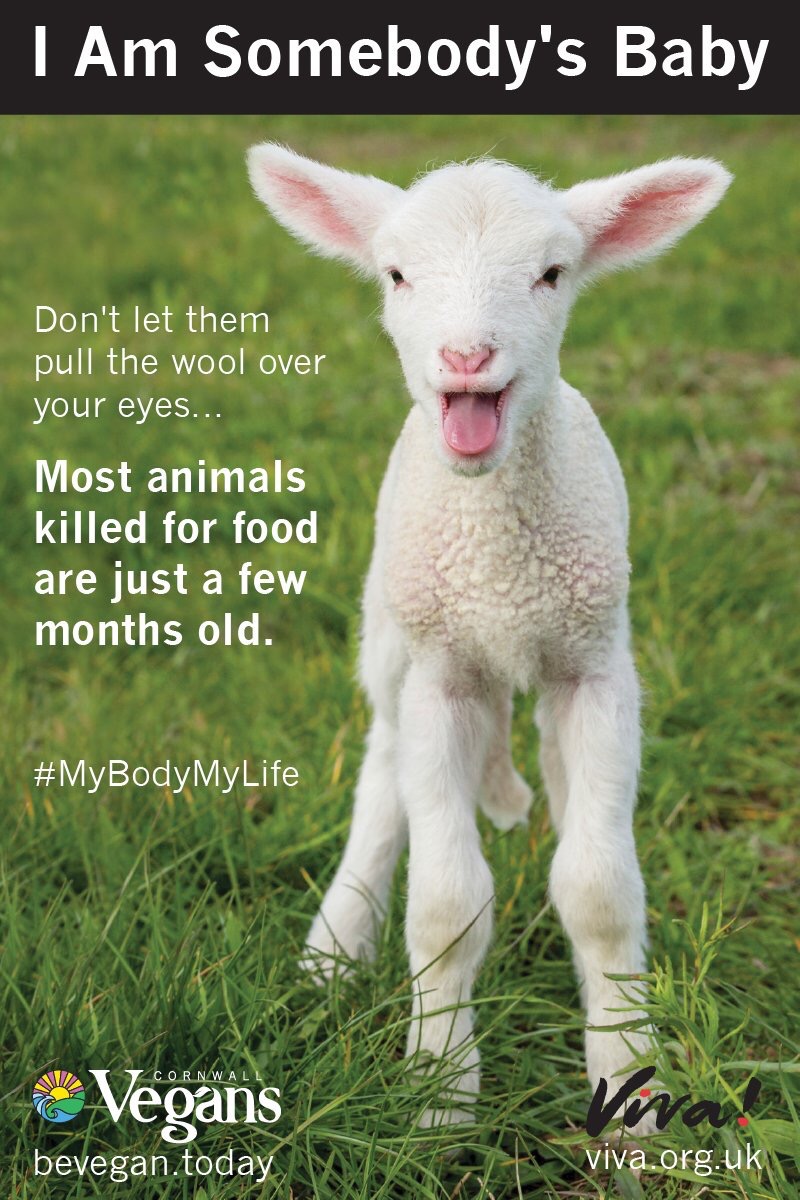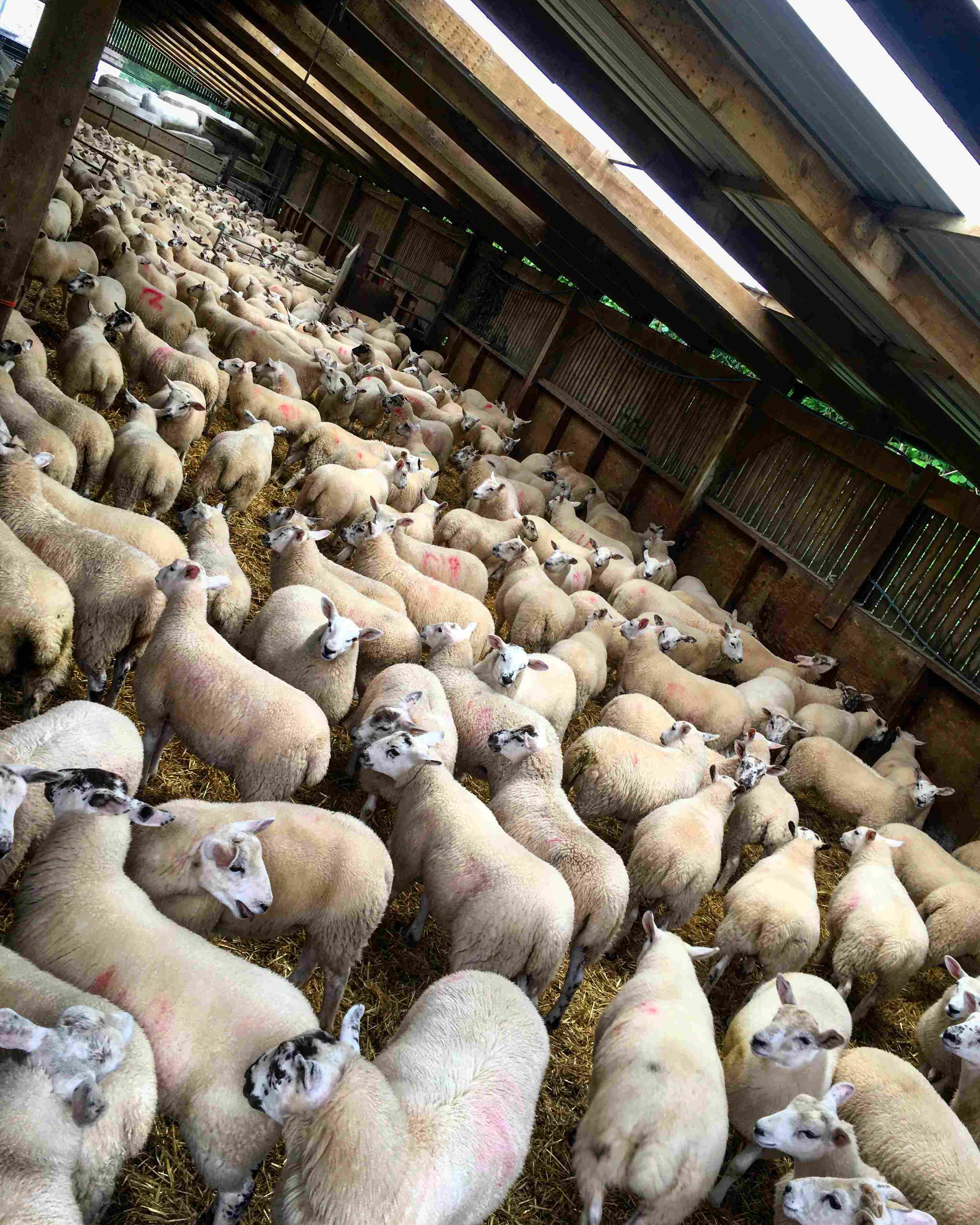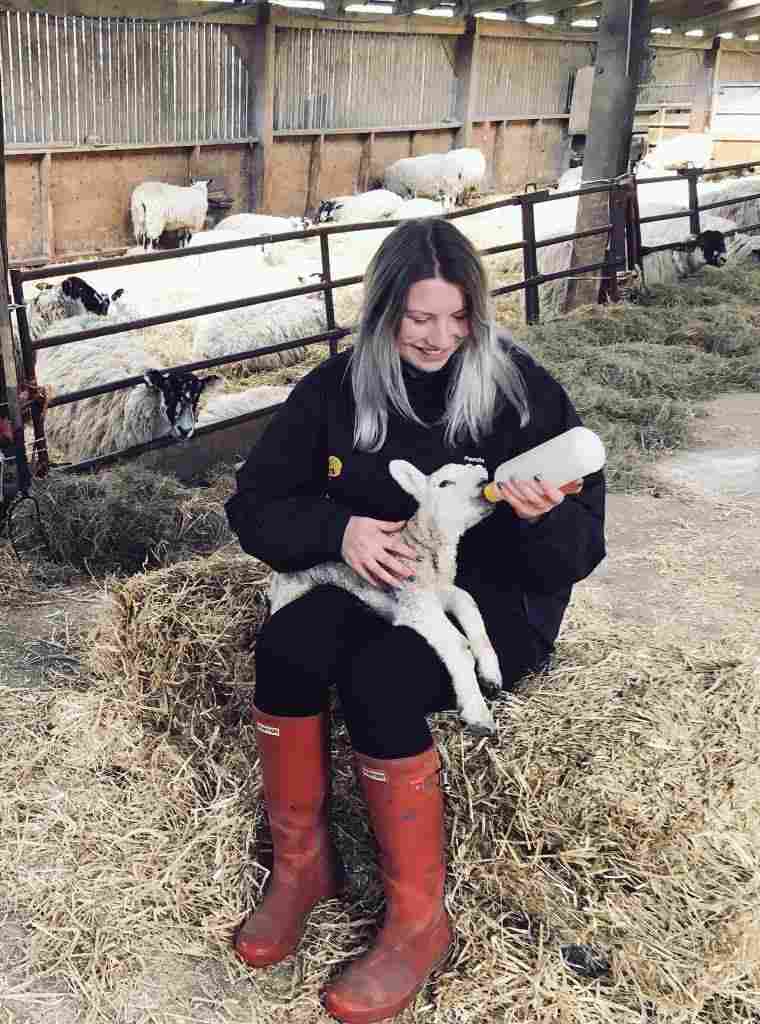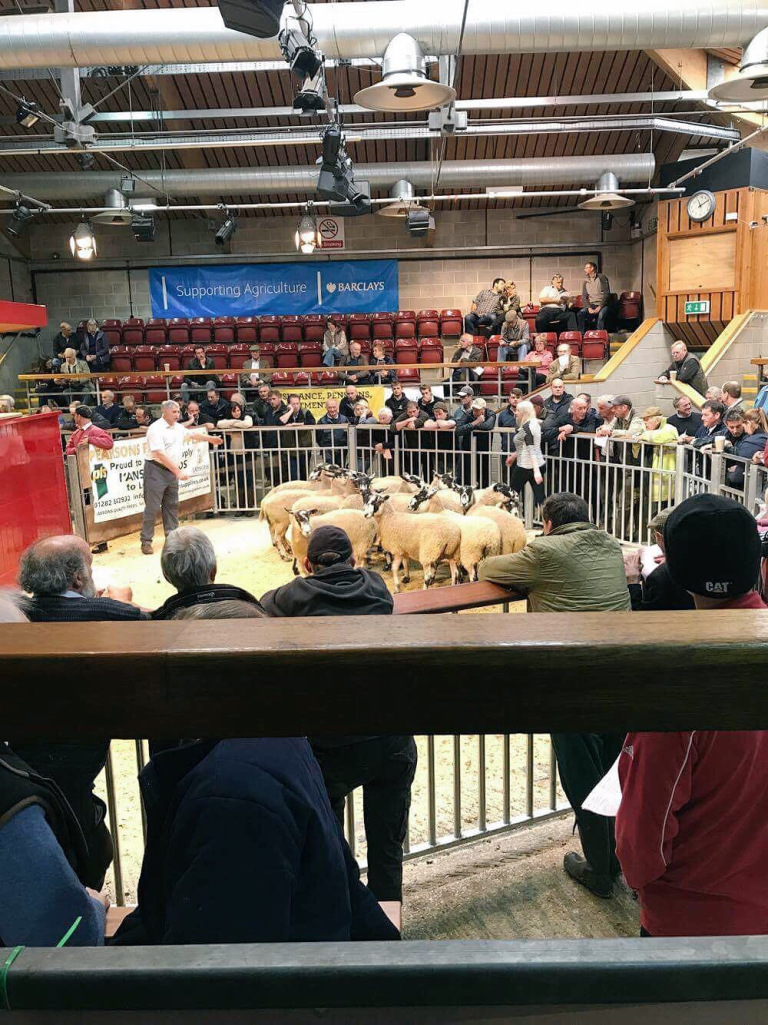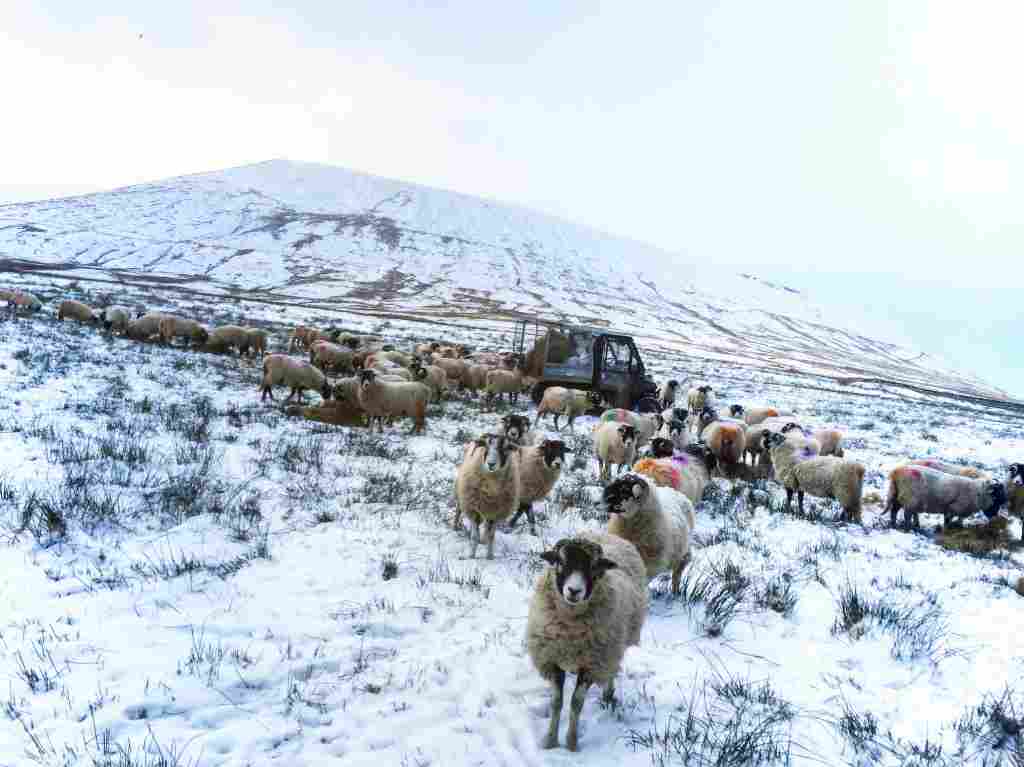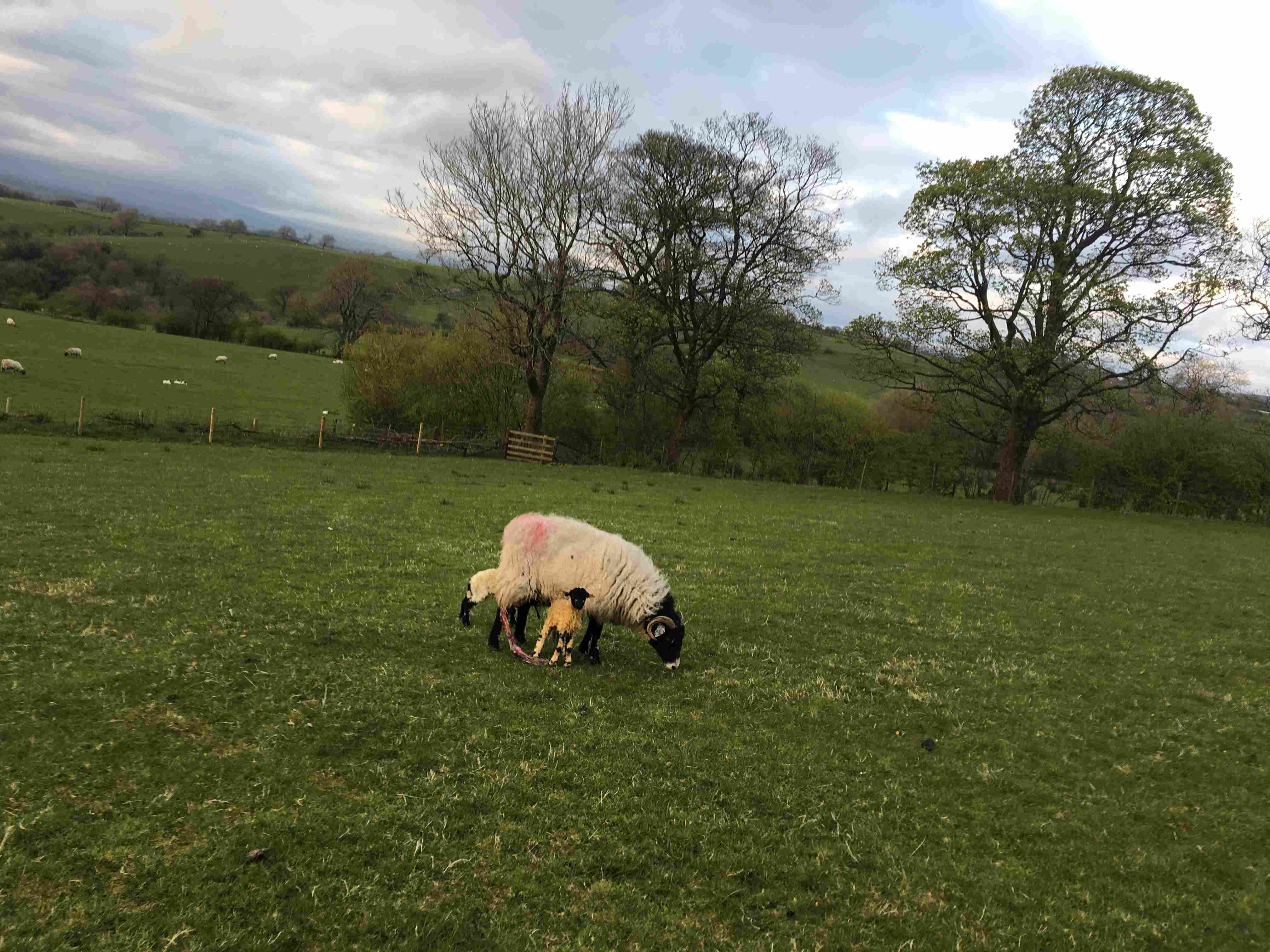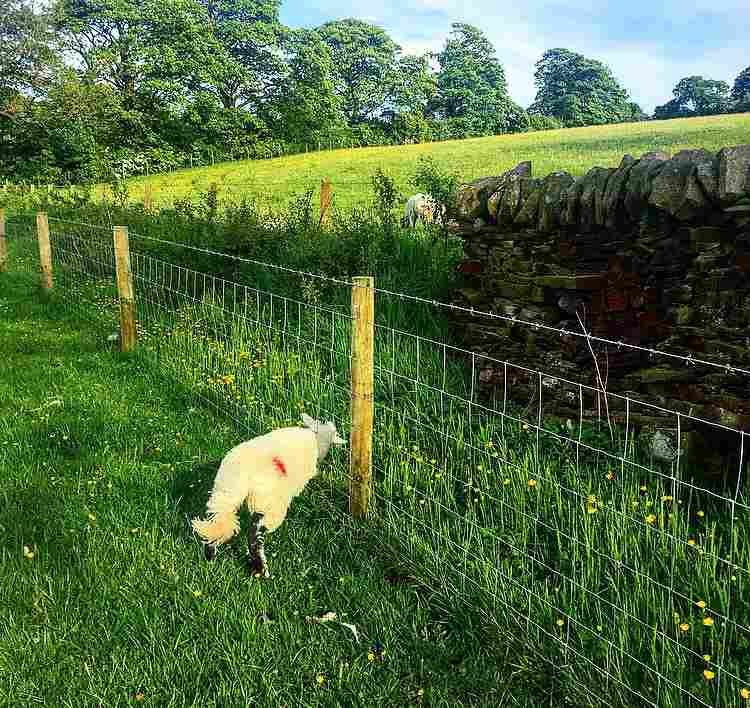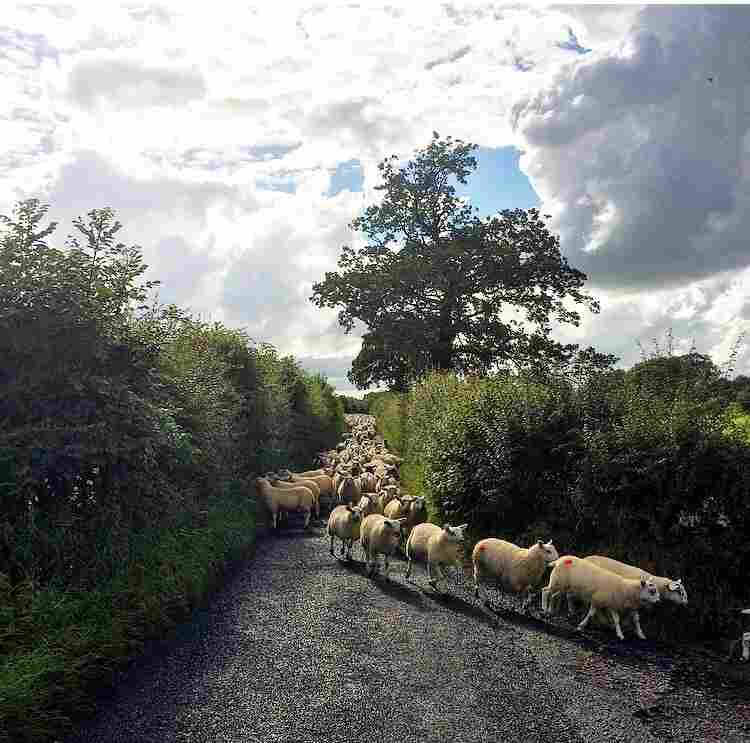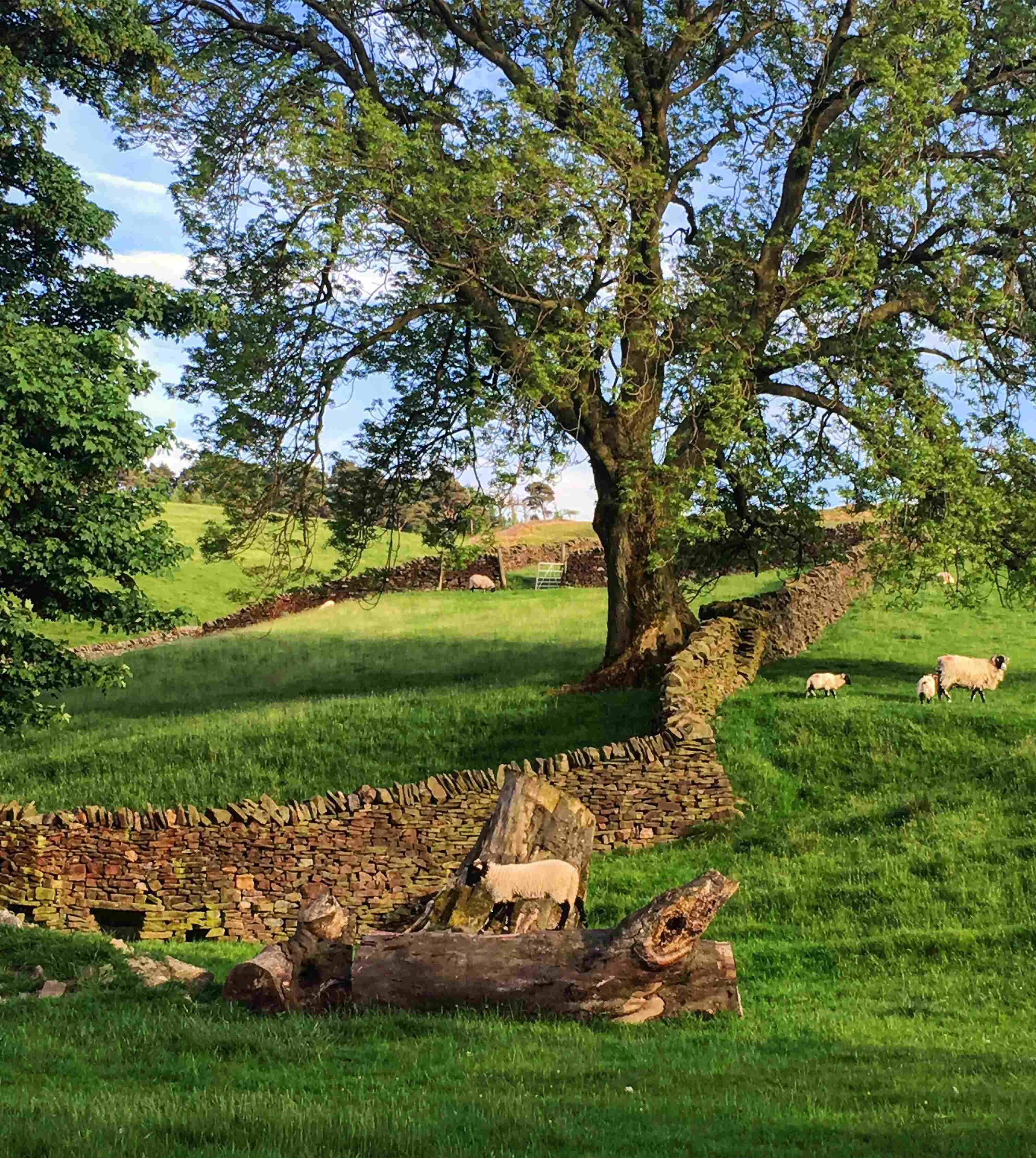Over 65% of the UK’s farmland is suited to growing grass – a.k.a. unable to grow crops. Hannah Binns, a sheep farmer’s daughter, busts some myths about lamb.
Especially in upland areas, grazing livestock is the best way to convert natural resources into protein rich lamb.
Grazing plays a key role in shaping and maintaining our iconic countryside and also stores a huge amount of carbon – a win win for everyone.
I’m quite old fashioned in that I like my lamb chops served with roast potatoes, veg and a dollop of homemade mint sauce.
But with recipes for lamb kebabs, herb rubbed steak and pies popping up all over the internet, the versatility of this delicious meat is becoming common knowledge, which is great to see!
Here’s a link to some awesome lamb recipes from @simplybeeflamb should you wish to expand your tastebuds and cook something new.
LoveLamb week which runs every year in the UK, is about celebrating this sustainable, protein-rich red meat. But it’s also a week of educating and shattering misconceptions about the production of lamb.
Some of these misconceptions have already surfaced on my social media timeline.
For example, this image.
This is a misleading image. Suggesting that the lamb in the photograph is a few months old is laughable – at most it is 4 days old.
Here is a photograph of a few months old lambs – let’s play spot the difference:
Notice how these lambs are much bigger, with broad legs, neat and compact shoulders, have a good width of loin and their tails are not too lean or fat.
These are the kind of lambs, known as finished/fat lambs, that are served on your plate – not the week old cute and cuddly one in the photograph.
But what bugs me more is the misconception that farmers are cruel to their sheep.
The reality is that sheep farmers care very much about their flocks wellbeing and a lot of time and planning goes into producing a lamb.
A short insight into a year of lamb production…
Autumn
If farmers did not care, we would not spend days at an auction ringside, bidding at sheep/tups sales for additional or replacement stock to ensure our flock grows in strength.
Winter
If farmers did not care, we would not drag ourselves from our comfy warm beds at 5.30am to scan sheep in the freezing cold morning or go searching in blizzards of snow for lost sheep.
Spring
If farmers did not care, we would not tire ourselves out during lambing time for months on end.
The list of daily jobs include: bottle feeding pet lambs, marking and turning out, bedding up, feeding up, checking outdoor sheep, bringing in any poorly lambs – to name a few.
Oh and of course, lambing sheep!
If farmers did not care, we would not spend hours out in the fields checking on new born lambs and running after them until we are blue in the face trying to catch them so that they could go back inside for some extra TLC.
We also would not free the lambs who get their heads stuck in fences and suffocate themselves, a notorious party trick for horned lambs!
Summer
If farmers did not care, we would not spend most of our time maintaining our flocks welfare through daily chores of dosing and foot-trimming (the smelliest job!).
If farmers did not care, we would not work long hours gathering and sorting lambs to go to the auction/abattoir in sweltering hot conditions.
So, please think again before thinking farmers do not care, because we really do. This, in short, is how the lamb on your plate is produced each year.
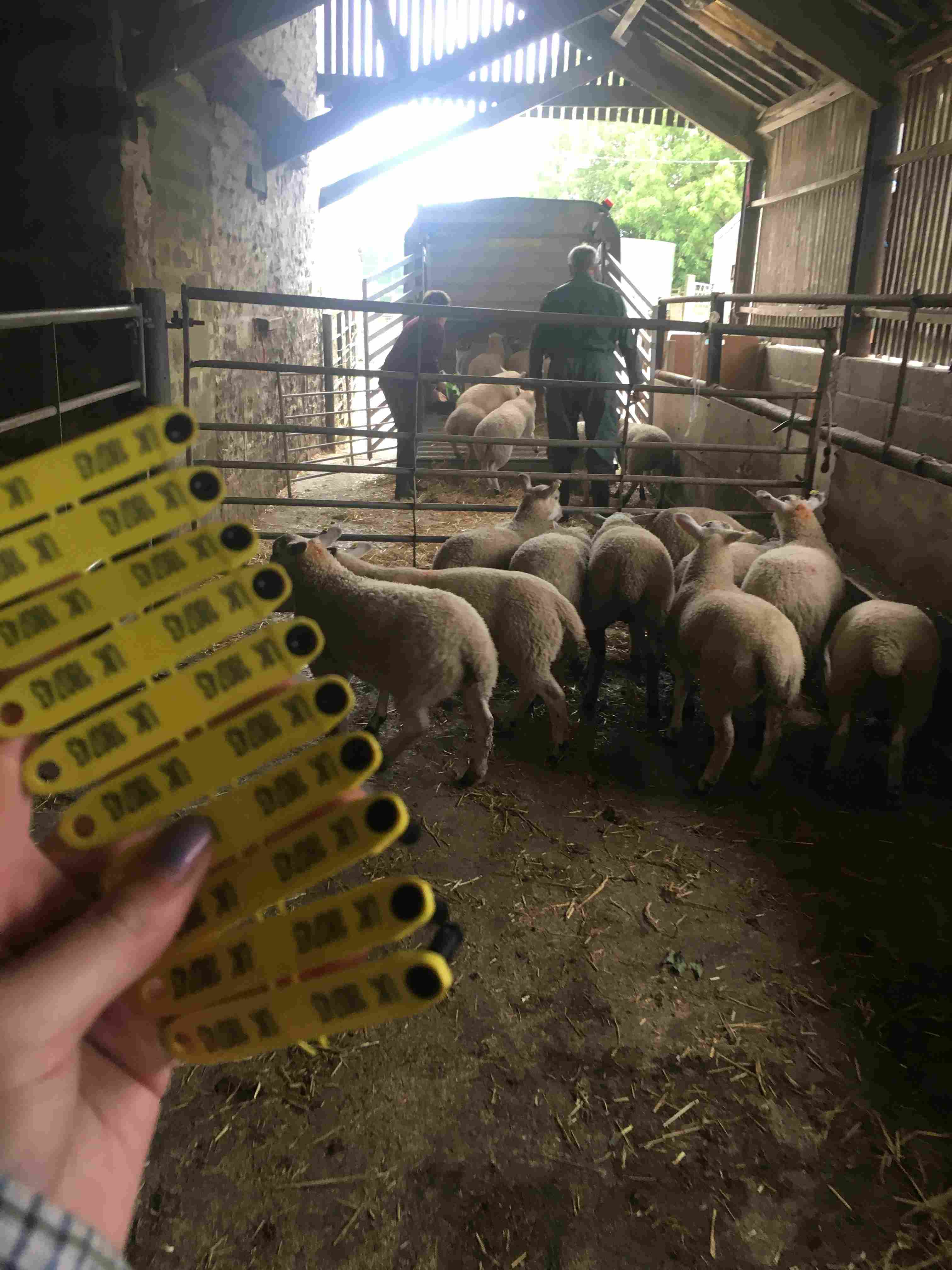
A final point to mention is that not all lambs are produced solely for meat. For example, on our farm we select Swaledale/Texel lambs each year in order to improve the quality of our future flock.
For me, #LoveLambWeek is an incredibly important campaign that sheep farmers everywhere need to get behind.
It is time we educate our consumers about the provenance of their meat, rather than leaving it all to Google.
If you are still unsure about eating lamb, ask your local farmer questions and if possible, go and see how lamb is produced.
Support us by buying lamb directly from local butchers or consciously selecting British Lamb at the supermarket.
